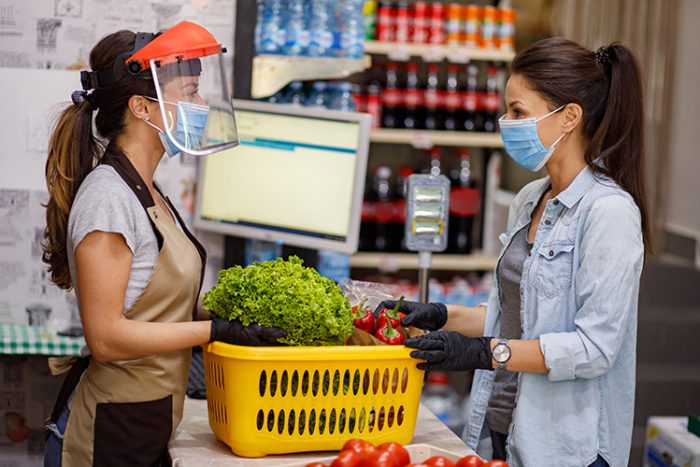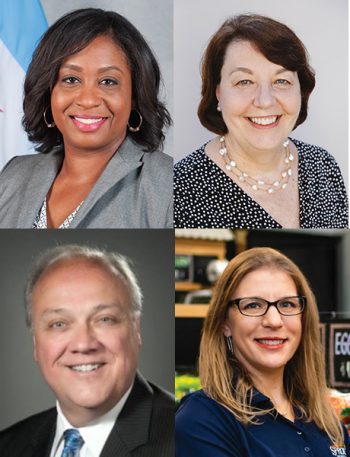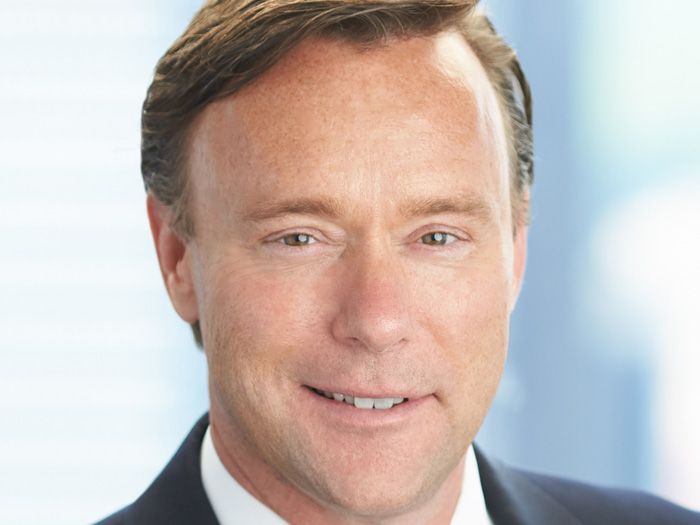PMA Companies and Risk & Insurance Feature Excellence in Workers’ Compensation

Just around this time on a normal year, one thing you’d see behind the scenes at National Comp would be preparations for a Q&A panel featuring the winners of the Theodore Roosevelt Workers’ Compensation and Disability Management Awards (the Teddy Awards), an annual honor recognizing employer excellence in workers’ compensation and injury prevention.
This year, of course, the COVID-19 outbreak upended everyone’s “normal.”
In light of workplace disruptions across the country and the world, The Teddy Awards — together with the program’s longtime sponsor, PMA Companies — decided to present Excellence in Action, a special editorial series highlighting the excellence all around us as employers stretch their limits to protect their people during a global pandemic, amid immense and unexpected workplace safety challenges.
The people who shared their organizations’ stories with R&I will join the 2020
National Comp One-Day Virtual Event on Oct. 21 to exchange ideas and share what they’ve learned during this unprecedented year.
Panelists will include: Peggy Crook, AVP, Loss Control of Healthcare Risk Advisors; Joseph Molloy, VP, Workforce Safety of Northwell Health; Alexis Pheiffer, Deputy General Counsel for Sprouts Farmers Market; and Tamika Puckett, Chief Risk Officer of the City of Chicago.

Clockwise from top left: Tamika Puckett, Chief Risk Officer, City of Chicago; Peggy Crook, AVP, Loss Control, Healthcare Risk Advisors; Alexis Pheiffer, Deputy General Counsel, Sprouts Farmers Market; Joseph Molloy, VP, Workforce Safety, Northwell Health
“The workers’ compensation industry has experienced more disruption in the past seven months than it had in the past 70 years,” said panel co-moderator Michael MacAulay, SVP of Sales with PMA Management Corp.
“As a result, the industry has changed substantially to address the new work environments and unforeseen risks. The Excellence in Action series and panel discussion provide an outstanding forum of peer-to-peer insights that is needed to assist risk managers in facing the many challenges of today.”
The conversation, moderated by MacAulay and Risk & Insurance®’s Workers’ Compensation Editor Michelle Kerr, will take a closer look at how these organizations protected and cared for their essential workers during the greatest health crisis in a generation.
The Stories We’re Excited to Share
At Healthcare Risk Advisors (HRA), Peggy Crook consulted with actuaries and an epidemiologist, creating a customized system to track exposures, positive diagnoses and reported incidents for employees, including data on their comorbidities — working ahead of the NCCI to create its code system.
This data allowed HRA to study immediate short-term outcomes, some of which she will share with the panel.
Also notable was the organization’s customized emphasis on proactive behavioral health measures such as assessing employees for anxiety and depression and hiring a nurse to work with employees experiencing any mental health concerns.
“As the numbers skyrocketed, the reality is that no one knew how to handle this pandemic, but we had built a workforce safety department on a culture of advocacy.” — Joseph Molloy, VP, Workforce Safety of Northwell Health
“One of the things I was most proud about was the customized screening the nurse used to identify employees for signs of anxiety or depression. Claims professionals also used custom protocols to identify those at risk. Sometimes signs of anxiety don’t show up on the first call, we might see indications on the second or third call,” Crook said.
As New York’s largest private employer, Northwell Health took a leadership role as the pandemic arrived in the United States. That’s exactly what Northwell Health’s leadership did in launching an emergency operations command center, ensuring that they could make the best, most timely decisions based on then current information — information that was changing rapidly.
This command center approach allowed Northwell to successfully secure enough protective gear and masks as early as January and fit-tested more than 30,000 staff. As New York became a hotspot, the health system ultimately treated more than 17,000 COVID-19 in-patients and incurred over 6,000 workers’ compensation COVID-19 related claims.
“As the numbers skyrocketed, the reality is that no one knew how to handle this pandemic, but we had built a workforce safety department on a culture of advocacy,” Molloy said.
“We made the decision early on that we would accept each claim on face value and investigate it later. We didn’t want hold up employee benefits waiting for medical evidence, and wanted to ensure employees were appropriately quarantined.”
While the health system had experienced other outbreaks, like flu or measles, none of them compared to the sheer magnitude of this pandemic. The closest parallel, Molloy said, was 9/11 in New York City, which helped to guide the health system’s decision to anticipate potential long-term health impacts even before they could possibly be known.
“We made the strategic decision to record everything — even if someone was asymptomatic or had mild symptoms,” he said.
“Because of the uniqueness and the magnitude of the pandemic, employees who may have gone to the hospital, been exposed, or were quarantined and did not themselves never report an incident, we used other channels to ensure that we accounted for all of the incidents across Northwell. Unless there was compelling evidence otherwise, we made the assumption that any impacted employee ascertained COVID-19 in the workplace.”
The essential workers in supermarkets faced a different set of challenges: a major break in the supply chain causing shortages to the food system and empty store shelves — a problem most Americans had never encountered before.
Alexis Pheiffer sought out safety information and protective gear for Sprouts’ workers across 340 stores in 23 states in January, long before the pandemic had truly impacted Americans.
As the virus hit, Sprouts implemented safety and sanitation protocols, contact tracing and hired additional staff to prevent burnout. As grocery stores, long the default town squares in many communities, became hotbeds of political debate and personal frustration over mask wearing, Sprouts offered de-escalation training to employees.
“The workers’ compensation industry has experienced more disruption in the past seven months than it had in the past 70 years. As a result, the industry has changed substantially to address the new work environments and unforeseen risks.” — Michael MacAulay, SVP of Sales, PMA Management Corp.
In Chicago, Tamika Puckett deftly handled the crisis as it impacted her city’s unionized workforce who couldn’t stay home. Her solutions? Protections such as a mask mandate and hand sanitation stations for essential workers and an enterprise risk management approach led by a cross-departmental team that includes paid leave for quarantine or for caring for sick relatives.
These stories have largely gone unheard in the mainstream media, but it’s important that the industry learns from their successes, particularly as we face down future outbreaks of this pandemic or others.
“In my many years in the workers’ compensation industry, I have never seen the insights from accomplished risk managers, like the ones featured in the Excellence in Action series, to be as vital as they are today to employers’ success and employees’ safety and well-being,” MacAulay said.
At Northwell, health system leaders are preparing for a resurgence with the state already seeing upticks in the number of new COVID-19 cases over the past few weeks, Molloy said.
“We now have these procedures and policies in place, so we are just staying really focused on workplace safety and making sure we continue to make decisions that are in the best interests of our employees.” &










